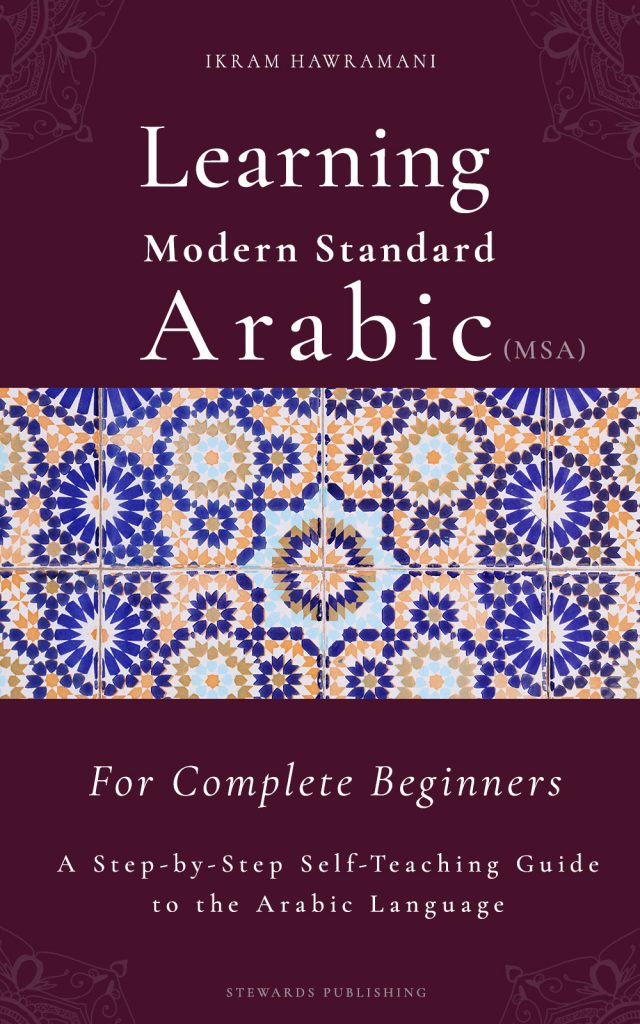Update: I have reissued this book under the title Learning Arabic for Complete Beginners.
In August last year I thought I could start working again, but I was wrong. In March this year things changed and I was able to start working on my book Learning Standard Arabic (MSA) for Complete Beginners, a book I have wanted to write since 2019. It is based on the same learning method as my other book, Learning Quranic Arabic for Complete Beginners.
In over 350 pages, readers begin by learning the alphabet and go on read a fable from Aesop, a story about a boy’s trip through Jerusalem with his grandfather, then move on to modern Arabic poetry. Meanwhile proper transliterations and pronunciation are provided for every single sentence of Arabic, using my beloved Brill Encyclopedia of Islam system.
Buy it on Amazon (US): Kindle | Paperback
UK: Kindle | Paperback
From then on I take readers through what is perhaps the greatest Arabic poem written in the past century or two, the 119-line Rain Song by the Iraqi poet Badr Shaker al-Sayyab.(1926-1964). This poem is the only piece of Arabic writing I have read that is almost as hard-hitting as the Quran, making shivers run through your skin.
In the fourth part learners read a poem by the Persian intellectual Ali Shariati (1933-1977) called One and Beside it Zeroes Without End. There was no proper Arabic translation of it, so I had to translate it from Persian to Arabic, and of course from Arabic to English. It is written in the form of a Persian fable with a strong spiritual meaning it, starting from God creating the world.
It is strange but what I have discovered (I could be wrong, though) is that when I stop trying to work toward big goals and missions, when I simply tell myself that my job is simply to live, to be, with no greater goal in life, that is when I can actually work on the things I love. It is like a dark cloud is removed and my energy and inspiration comes back.
I have written an article about this, and once I’m reasonably sure I’m not mistaken I will publish it. I may be able to come back to my regular work in Islamic studies, but I do not know.

Would this help in understanding Classical Arabic in classical works as well?
It clearly specifies that it teaches modern standard Arabic. Even native Arabic speakers need advanced classes to understand classic Arabic.
It would help actually because the grammar and much of the vocabulary hasn’t changed, it would give you a foundation to build on. A person who knows Standard Arabic can easily read one of the accessible books written for general readers by Imam al-Ghazali (died 1111 CE). However, for good comprehension of medieval Arabic books, practice is required, along with the use of classical dictionaries, since in medieval Arabic some words are used with a different meaning than their modern meaning, and there are also various idioms and turns of phrase in medieval Arabic that are no longer used today.
Where have you been? Miss your posts.